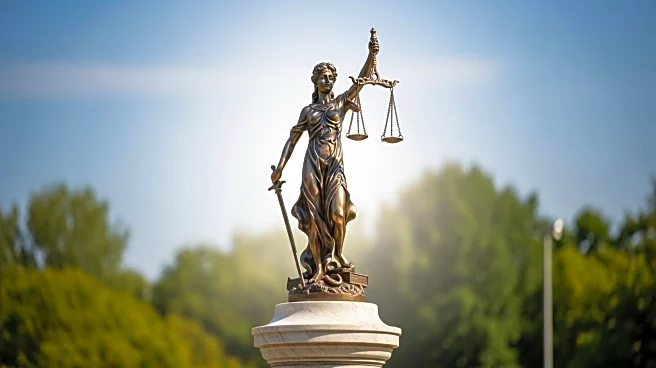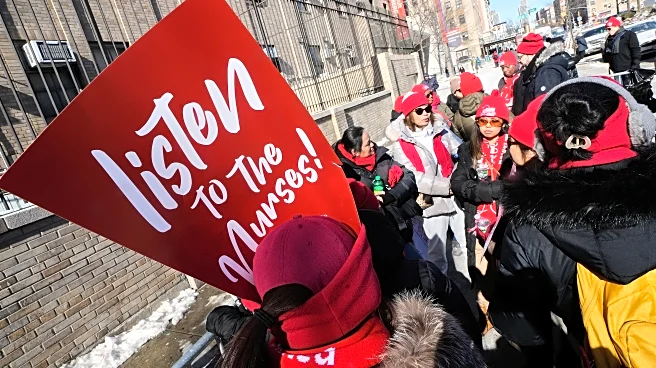What's Happening?
A statue depicting President Trump and Jeffrey Epstein was installed on the National Mall in Washington, D.C., but was removed by U.S. Park Police shortly after. The statue, titled 'Best Friends Forever,' was created by a group called The Secret Handshake and intended as a satirical commentary on the relationship between Trump and Epstein. The installation was removed for not complying with permit regulations, according to the Department of the Interior. The Secret Handshake accused the Trump administration of suppressing free speech by removing the statue without proper notice.
Why It's Important?
The removal of the Trump and Epstein statue highlights ongoing controversies surrounding Trump's past associations and the public's interest in Epstein's connections with powerful figures. The incident raises questions about freedom of expression and the role of public art in political discourse. It also reflects the tensions between artistic expression and government regulation, as well as the broader implications of Trump's relationship with Epstein.
What's Next?
The Secret Handshake may continue to create provocative installations, challenging political narratives and sparking public debate. The removal of the statue could lead to further discussions about the limits of free speech and artistic expression in public spaces. The Trump administration may face continued scrutiny over its handling of Epstein-related matters and calls for transparency.
Beyond the Headlines
The statue's removal underscores the sensitive nature of Trump's past associations and the public's interest in Epstein's connections with powerful figures. It also highlights the role of art as a tool for political commentary and the challenges of balancing artistic expression with government regulation.









